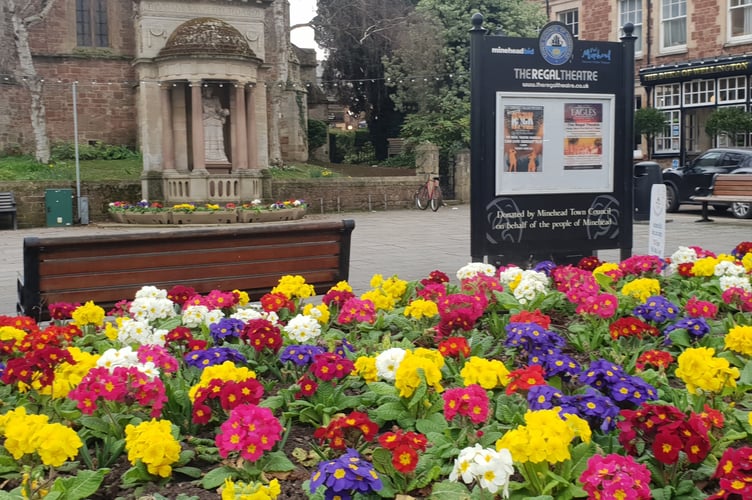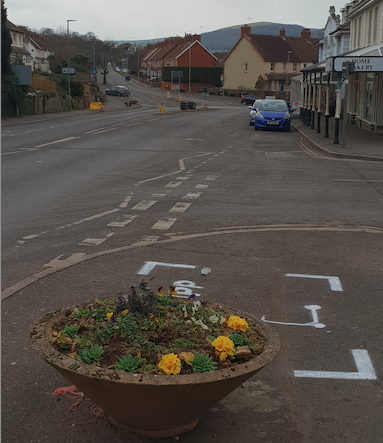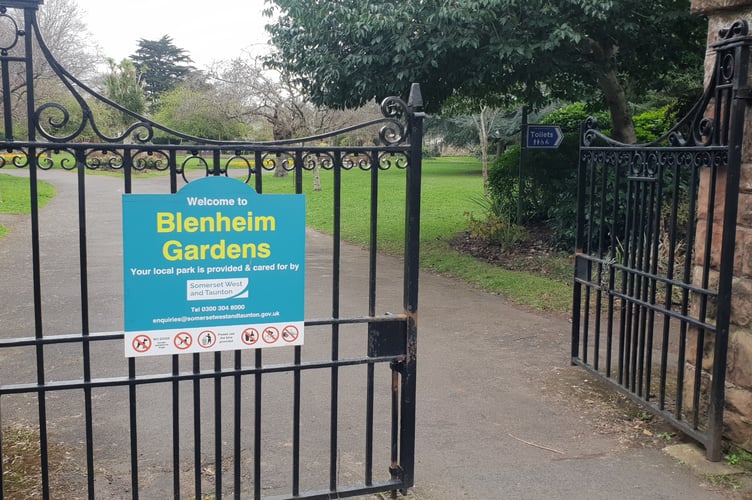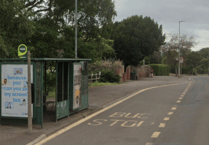AWARD-winning floral displays in Minehead are to become more sustainable as town councillors balance environmental concerns with costs.
Town clerk Ben Parker said the council faced a ‘strategic challenge’ managing floral displays and balancing traditional annual bedding practices and public expectations with ‘evolving environmental and financial considerations’.
Mr Parker said there was ‘growing tension’ between maintaining aesthetic floral displays in Minehead and addressing sustainability concerns.

He said: “Minehead has been renowned for its horticultural excellence over the years, including success in national competitions like Britain in Bloom.
“However, the council has begun transitioning towards more sustainable approaches.
“The amenities team has already started reducing dependence on annual bedding by introducing permanent herbaceous plantings and strategically reducing hanging basket installations.”
Councillors agreed a strategy where planters will gradually be converted from annual bedding to permanent displays using ornamental grasses and flowering perennials, with some being made smaller.
Permanent and annual activities will be ‘blended’ with potential future expansion to Blenheim Gardens, which has its centenary in 2025, if the park is taken over by the council.

Annual bedding will remain part of the strategy, with minimal impact on hanging baskets, although perennial alternatives will be trialled in some while others will be ‘strategically’ removed.
Other planters such as by the harbour and quay will be left empty through the winter and cake stand planters will be reduced to single tier planters, as happens now.
Mr Parker said the cost of such an approach could be kept at about £10,000, against the current annual budget of £12,000.
Mr Parker said costs would likely fall as perennial bedding required only initial investment.
He said such an approach would ensure Minehead continued to be recognised for its floral displays, but might not meet the council’s sustainability expectations.
Mr Parker presented councillors with three other options, one of which was to switch entirely to permanent bedding displays from May, which required higher spending in the first year but later could drop to between £5,000 and £10,000 a year.

He said it was the most environmentally and financially sustainable approach but needed extensive planning and plant sourcing and there were potential public opinion challenges.
A third course would be to gradually transition away from annual bedding and take advantage of climate change by extending the summer bedding period into September and October, which could be considered a ‘best of both worlds’ approach.
However, it risked ‘aesthetic inconsistency’ during the extended period, was more complex to schedule maintenance and could generate a perception among residents of neglect during fallow times.
Mr Parker said the fourth suggestion was for the council to simply reduce annual bedding stock year on year until it was entirely permanent, which might be achieved in five years.
He said residents might be more accepting of a gradual move away from annual bedding but it would not bring instant cost savings.
Mr Parker said a progress review on the new strategy would be presented to councillors for evaluation and discussion after two years.





Comments
This article has no comments yet. Be the first to leave a comment.